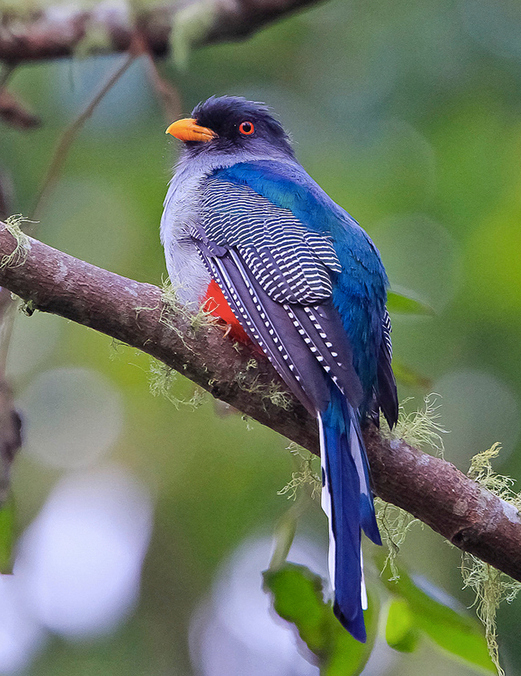
The glittering Hispaniolan Trogon is among the 34 stunning birds that are endemic to the island of Hispaniola, which includes the Dominican Republic and Haiti (photo by Jose Pantaleon).
|
The 24th BirdsCaribbean International Conference was held in the capitol of Santo Domingo in the Dominican Republic from July 18 to 22 in collaboration with Grupo Jaragua, bringing together about 335 wildlife professionals, ornithologists, educators, and ecotourism leaders from more than 30 countries. As the largest bird conservation gathering in the Caribbean, the conference has been a vital platform for regional collaboration, emphasizing the urgent need to protect the region’s extraordinary avian biodiversity in the midst of escalating conservation challenges.
“The Dominican Republic, home to 33 endemic bird species, provided an ideal setting and inspired our theme: From Mangroves to Mountains – Safeguarding our Avian Treasures,” stated Dr. Lisa Sorenson, Executive Director of BirdsCaribbean. “The Caribbean is a biodiversity hotspot with more than 700 species of birds, including 180 species found nowhere else in the world. Pressures like habitat loss and climate change have put these species at unprecedented risk.”
The conference highlighted the untapped economic potential of birding tourism in the region. Birding is a rapidly growing $600 billion global industry, yet birding tourism remains underdeveloped in the Caribbean. Protecting habitats is crucial not only for conservation, but also to unlock this significant economic opportunity centered on Caribbean birds. During the Caribbean Birding Trail symposium, delegates explored strategies to grow birding tourism in a way that supports both economic development and environmental protection.
A key focus of the conference was collaboration and empowering local communities in conservation efforts, a mission shared by BirdsCaribbean and partners across the region. “In the Caribbean, conservation is often driven by dedicated citizens who create change through community mobilization,” Dr. Sorenson highlighted. “From birding clubs that help curb illegal wild bird trade in Cuba to monitoring endangered forest birds in St. Vincent and the Grenadines, the conference showcased impactful grassroots work.”
Seven world-renowned keynote speakers, including Nobel Peace Prize recipient Dr. Terry Root, and award-winning British broadcaster and writer David Lindo, enriched the conference with diverse perspectives, covering topics like ecological restoration, the impacts of climate change, and the value of urban birding. Altogether, the dynamic program addressed the most pressing issues in Caribbean bird conservation: Providing a forum for delegates to share the latest science, education, and on-the-ground conservation initiatives, and to gain invaluable insights and practical skills to support conservation efforts in their home countries.
At the Opening Ceremony, Vice Minister of Protected Areas of the Ministry of Environment and Natural Resources, Federico Franco, praised the conference’s timeliness, emphasizing that biodiversity protection is one of the most important challenges of our era. “We are in a critical moment for Caribbean biodiversity… but we are also in a unique position to make change,” he asserted. “When we share science and knowledge, we create opportunities to learn, connect, and develop solutions.”
In addition to sharing valuable information, the conference fostered crucial collaboration among Caribbean conservationists. A Mentor-Mentee Lunch connected emerging professionals with seasoned experts, and field trips to key birding destinations including Sierra de Bahoruco and Ebano Verde allowed delegates to discuss shared conservation goals in the midst of the rich biodiversity of the Dominican Republic. These interactions laid the groundwork for increased collaboration, renewed dedication, and strengthened conservation capacity across the region.
“The conference provided a vibrant platform for learning, networking, and collaboration. We were honored to be part of discussions about the latest research and conservation efforts, which have invigorated our own initiatives back home,” enthused Trinidad delegate Giselle Ragoonanan, co-founder of the Trinidad and Tobago Bird Observatory and Research Center.
As the conference concluded, the vital role of the Caribbean as a global biodiversity hotspot was underscored more than ever. Collaboration is imperative to protect the region’s avian treasures, and stakeholders at all levels were urged to unite in safeguarding the Caribbean’s vast natural heritage for generations to come. To learn more about BirdsCaribbean and their interesting work, see BirdsCaribbean